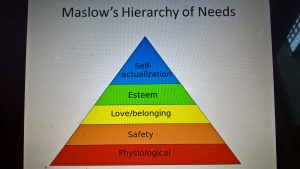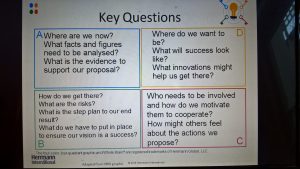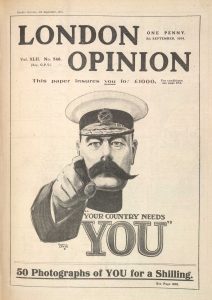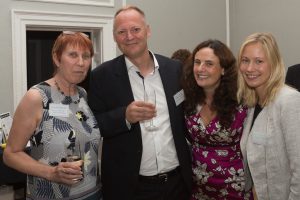Home
Nov 04
2016
1 Responses
Comments
Helen Whitten
Posted In
Tags
How accurate is your memory of the past? Of your family? Of past events? Do you find that siblings, partners or colleagues have contrasting views of an experience you shared? People tend to notice and remember different aspects of a situation or project.
David and I have just been travelling the Danube from Budapest to Bucharest. It was a tour organised by The Daily Telegraph and Emerald Waterways (www.emeraldwaterways.com). The theme was war. We were treated to lectures from BBC foreign correspondents Nick Thorpe, talking about Budapest and the Danube, John Simpson covering the fall of Ceausescu in Romania, and Martin Bell who travelled with us and enlightened us with his experiences of the Croatian Wars. It was a fascinating trip on a luxurious and expertly-run boat and in the company of some delightful, educated and interesting fellow travellers.
I came away with many impressions of post-Communist Eastern Europe and two particular questions kept coming into my mind as we tried to piece together the various narratives we heard from our local guides, the journalists’ lectures and the people we met on the street. First, how do people find the stoicism to survive the terrible personal suffering of war? Something I suspect one can only know by experiencing it and I hope I shall never do so. Second, how do we find the heart of the matter when so many perspectives and personal experiences differ, when memories are often clouded by emotion and filtered by belief? What and where is the truth within these complex events: what is history?
We visited towns and villages in Hungary, Croatia, Serbia, Bulgaria and Romania. In each place we had an individual tour guide and each guide offered a different perspective. This was particularly true in Croatia where the responses to the question of how Croats and Serbs now live together were markedly contradictory. We all had hosted lunches with different families. In our family there were two daughters, their parents and two children. Their experience of the war had been that their house had been 70% ruined by mortar shells and they had escaped to Austria while a Serb family lived in their home for five years. The Serb family had been in touch with them throughout this period and handed them back the key at the end of the war. Now, they told us, Croats and Serbs live happily side by side and go to school together.
Our fellow travellers received strikingly different narratives from the hosts with whom they lunched. They were informed that Croat and Serb children may go to the same school but at different times of the day, so that they don’t mix. Martin Bell confirmed this and reported that even before the war people lived alongside each other because the police made sure there wasn’t trouble. We heard other sad stories of the after-effects of the war where a husband had been killed by chemical gas, young men maimed physically or left with PTSD, some never able to work again. The fact that the family David and I visited seemed to be of an optimistic nature and united as a unit may have made their perspectives of history different from that of others. Each individual we spoke to had experienced distinct events and had inevitably met those events with their own beliefs and points of view.
I was left with a general impression of the miserable legacy of Communism – the hypocrisy of leaders presenting themselves for equality of all people and yet building themselves palaces and pocketing money. The monotonous and grim concrete blocks built in all the five countries we visited that are now crumbling and decrepit. Our guides told us, as we were told in Russia earlier this year, that their parents sometimes harked back to the certainty of those times, even though they were on starvation rations. There had been more-or-less 100% employment and people had the ability to live, albeit at a meagre level. Today nothing is certain and people are frequently living on as little as 400 Euros per month, with rents taking more than half of that income.
Everywhere we went we heard of high unemployment, low wages, derisory pensions, of corruption in high places, of those who were in Communist regimes remaining in some administrative and political roles. And of how the young are moving away to Germany, the US, Ireland, UK because they see no prospect of work in their own countries, depriving those countries of their brightest doctors, lawyers, entrepreneurs who could potentially help rebuild these countries economically.
But I question whether the people who have been privy to occupations or dictatorships find it easy to be entrepreneurial? Communism has treated them as automatons, as groups of people and not as individuals. I wondered, from a neuroscience perspective, whether finding the neurons in the brain to identify innovative opportunities may well not come easily to such people with these histories. After all, their parents lived under Communism and their grandparents often under an authoritarian monarchy, neither of which encourage creative individualism. I don’t believe we can make people think in new ways overnight, any more than we can expect people to embrace democracy overnight when they have not had it for centuries, if ever.
Once again I was struck by how different the history of the UK has been to that of mainland Europe, where they have had centuries of invasions, occupations, dictatorships. We were told that when living under an authoritarian regime people find ways to get around the rules – the black market, whispered deals in corridors to avoid tax, make things happen, or find goods that people want. They call it ‘the loop’. We have not been occupied and have had centuries where our institutions have developed in such a way that most of us abide by what we recognise to be adequately fair rules. Having visited East Europe, Russia and South America over the last couple of years, I am left with a sense that we just don’t know how lucky we are in the UK, that our poverty bears little relation to the kinds of hardship people in these countries are experiencing.
I am no expert and don’t pretend to understand the histories of the countries we visited. But I do think we need to be careful when we are constructing a historical narrative, whether it is about a war, a country, a family or an organisation. Martin Bell was a very enjoyable and insightful companion to have on board the ship with us and brought events alive with his direct experiences of war. And yet explained to us that inevitably if, as a journalist, you are embedded with one group or army unit you gain depth of understanding of their situation at the expense of understanding their enemy, or maintaining a sense of the overall strategy or direction of the war in general.
In his preface to his classic book on the Algerian War, A Savage War of Peace, the historian Alistair Horne writes of how complicated it is to reach any objective truth in a complex and long war, with multiple levels of action and no obvious single focus. A French premier had commented that “only an Englishman” could be adequately objective to see beyond personal perspectives of the Algerian War. In 1580 the French philosopher, Michel de Montaigne wrote that if humans so frequently lack self-knowledge, why should people consider our “facts” about the universe to be reliable?
Post-Communist Eastern Europe consists of many countries who experienced multiple events. Within those events are individual stories, emotions and beliefs about what happened. All perspectives add to the story and have a truth but as these perspectives can be contradictory the real truth of history can be illusory. Montaigne might argue that some humility about our ability to see and remember things clearly is a more realistic description of the fallible human mind. Can we personally be so sure that our own memories of a situation are totally accurate, I wonder?
And a poem inspired by our visit to Vukovar and Martin Bell’s lecture and video clips:
“All Wars are the Worst War” (Sergeant Andy Mason of the Desert Rats)*
The sniper dives behind a shattered door frame,
disappearing into long shadows of waiting.
Time travels both fast and slow
within the confines of his battle.
The windows of the nearby Hotel Dunav are being shot
window by window, floor by floor,
in the concrete Communist block skyscraper
towering over Vukovar’s harbour.
Houses stand bombed and broken.
A neighbourhood street where mothers had cooked,
children had played, grandparents visited,
now unrecognisable. A tumble of jagged bricks and breezeblock.
There’s nowhere to run. Every corner covered,
the wide wild fields of wheat booby-trapped with landmines.
He thinks he is fighting for justice, territory, belief.
He has not lived sufficient years to realize he’s a political pawn.
A mortar blasts and rocks his cover.
He ducks into darkness in the shelled ruin of a shop,
aims his gun into the gloom to discover a fighter
sheltering under the counter, teeth chattering, stupefied in terror.
Snipers firing, snipers being slaughtered, so many being maimed.
No orders reach them. Fear takes over.
Their young-man bravado seeps into the blackness of their hearts,
the futility of war murdering them both in its own way.
*From In Harm’s Way: Bosnia: A War Reporter’s Story by Martin Bell. See this and other poems on this link:
Oct 20
2016
2 Responses
Comments
Helen Whitten
Posted In
Tags
I have been wondering what exactly people mean when they use the term “foreigners” these days. In my dictionary it is listed as
1.a person not native to or naturalized in the country or jurisdiction under consideration; alien.
2.a person from outside one’s community.
3.a thing produced in or brought from a foreign country.
I am not sure how the Government is currently defining “foreigners” when they talk about them. I think Amber Rudd has a duty to be very specific in her terminology. As someone who is British but was born outside the UK – in Portugal – does she mean that I might be defined as a foreigner? The recent DNA test I had showed not only Anglo Saxon and Irish blood but also some percentage of North African, Middle Eastern, European Jewish, Italian and Greek. What does that make me?
A recent survey carried out by Ancestry.com revealed that the average UK resident is 36.94 per cent Anglo-Saxon, 21.59 per cent Celtic and 19.91 per cent Western European, from regions in France and Germany. Our ancestors surely travelled – for war, territory, love and religion so the concept of nationality is more complex than we might imagine. But I think that what people perhaps mean when they talk of foreigners is people whose customs are different to our own.
The brain is programmed to identify a threat. Way back when, our caveman ancestors would have sought to defend his tribe from any stranger that might have eyes on either his wife or his territory, or both. I think it helps to understand that this is a basic human survival mechanism. It would happen to any human being anywhere in the world when they perceive someone whom they perceive as a threat. We don’t have to beat ourselves up about it but we do need to understand that as citizens of the 21st century we have choices as to how we manage and respond to these primitive survival mechanisms.
We recently went to the Revolution exhibition at the V&A which covers the demonstrations that were taking place in the 1960s supporting peace and equality, gay, women’s and black rights. We may not think we have come a long way but believe me it is certainly better than it was then. It may not be perfect but we do have legislation that attempts to protect these rights now and we have sought peace even if we haven’t been able to protect the world from dictators.
But my point in this article is that we can choose to see beneath the skin to our shared human condition. As a coach I have had the privilege of having intimate conversations with people from all walks of life in many different parts of the world. In these moments I have been struck again and again by how similar are the concerns of human beings. People grieve at the death of a loved one, celebrate the birth of a healthy baby, worry about their bodies, their weight, their love life, their finance or careers. People are challenged by technological change and by work-life balance. Stress has become a more prominent feature of consciousness everywhere I have travelled.
Our bodies and emotions are part of our shared humanity. It is our minds that can divide us. We have developed the habit of categorizing everything – animal, vegetable, mineral, gay, black, white, Muslim, Christian, Hindu. This can be helpful but is often too binary. Someone may have come from another country or religion and yet have very similar values and attitudes to us. Another may not but they may both be placed in the same categorization pot by a newspaper, government or stereotype. A train that is over-crowded does not categorize its passengers. Whether they are striped or polka-dotted, the train is still either full or empty. It is the human mind that judges and categorizes.
Within our shared humanity is the ability to analyse and choose our response. The environment in which we live is continually changing. We continually change within it. Therefore some of the beliefs, expectations and thoughts that we have about who is like us and who isn’t may well be out-dated. The model below is one I developed early in my coaching career to help people recognise that at any stage of life we can reflect on and change our conditioned and habitual responses:
positiveworks-5-step-thinking-system 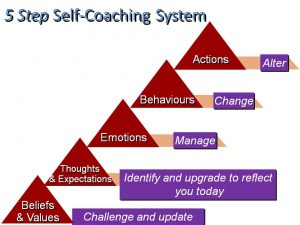
As a grandmother I hear my grandchildren talk about things in the same terms as their parents – whether this is about religion, literature, TV programmes or politics. As young children they are inevitably dependent on their parents for survival and it is natural for them to do this. As they become teenage no doubt this will change and they will rebel! And yet you often find that people do maintain the same political and religious inclinations as their parents throughout their lives. If the Dad is an Arsenal supporter then the sons are likely to be too – and will define themselves separately from a schoolfriend who supports Chelsea. It is just as tribal as our cavemen ancestors.
We are facing a challenging time ahead on several fronts with Brexit, the possibility of Trump in the White House and with the upheaval in the Middle East. This is surely a time when we need to be careful of our language when we discuss these problems and negotiate our relationship with the rest of the world. People may not be keen on EU bureaucrats but that doesn’t mean to say that they don’t like Europe and the Europeans. We may need to be wary of those who are out to do us harm but this does not mean that we have to be wary of all foreigners. It is time for Governments, media and individuals to use words precisely.
For beneath the skin, whatever our colour and provenance, our hearts beat, our digestive system processes food and our lungs breathe. We all suffer when we lose a loved one, laugh, dance, make love, worry about our children, wonder at the beauty of a sunset. As we go forward perhaps we need to be more aware of how our minds have the potential to separate us while our shared humanity has the potential to draw us together to solve the world’s problems. Or am I just being a 1960s Baby Boomer utopian!?
Oct 06
2016
0
Comments
Helen Whitten
Posted In
Tags
I am re-reading Emma Sky’s excellent book The Unravelling: High Hopes and Missed Opportunities in Iraq, in which she describes her experiences as an advisor to the US army during the rebuilding of Iraq post 2003. It has brought home to me once more how important it is for leaders to take psychological and emotional responses seriously. Again and again she makes it clear that the Coalition were not thinking rigorously enough about the psychology of those with whom they needed to interact. They were missing out the human factor of emotion, family groupings, tribes, religious sects and communities. They didn’t appear to be taking into account that how people feel emotionally about events will shape their individual and group behaviours and responses.
It hadn’t seemed to occur to those leading the bombardment to think ahead to how it might feel for Iraqis to have America bomb Saddam and his troops. Yes, people may well wish to be rid of a dictator, be they Saddam Hussein, Gaddafi or Assad, but it is a different matter to have a foreign force invade and then occupy their country – particularly if that occupying force have not considered safety and comfort after the event. The Coalition quickly lost the goodwill of the Iraqi people by not having had a vision of success that included stable government nor providing the people with water, electricity and supplies. It might have benefited the Coalition leaders to remember Maslow’s hierarchy of needs where he argued that if the basic physiological needs of food, water, sanitation and safety are not put in place people cannot rise up to levels of healthy communication:
Little was learnt after Iraq in the toppling of Gaddafi in Libya where the country was once again left in a state of disintegration, allowing it to become a breeding ground for the so-called Islamic State in the chaotic aftermath of that debacle. Once again in Syria one sees little evidence that the Coalition forces have stopped to consider who they are dealing with on a personality level and how best to communicate with them in the government, the Syrian people – or Putin.
Over many years working in the business world I have experienced a disparaging attitude to psychology, which they often dismiss as “psycho-babble”. I found leaders paid scant attention to the practical theories that psychology books can provide. Often the focus on people-matters is still regarded as a soft and woolly area rather than the serious ingredients of what can help leaders motivate and incentivise their staff to action.
When David and I attended a lecture last year describing a research project at Cambridge University on the subject of conspiracy theories we were shocked to hear that there was no psychologist in the team. The talk included discussion of the MMR vaccine, the supposed assassination of Princess Diana, and the idea that the US plotted 9/11. The examples contained many elements that related to the behaviours and psychology of those involved in conspiracy theories: those who instigate them, those who believe in them and those who don’t. Surely it is obvious that the belief systems of anyone involved in conspiracies would be shaping their susceptibility to either develop the conspiracy or to believe in it.
Do senior political figures read books on psychology, I ask myself? If they did I would be surprised if they would talk about others in the negative terms they often use. The egos of those in power are frequently far more sensitive than they might appear and it does make sense to stop and consider how Assad, Putin or Juncker might feel if they are referred to in a pejorative way. Talking down to this type of person might simply lead them to retaliate. The appalling rudeness that Farage, Boris Johnson and the Leave campaigners used during the Brexit campaign demonstrated all too clearly that they had not given a thought to the fact that they would inevitably need to continue to work with the members of the EU about whom they were being so derogatory. Jeremy Hunt could also learn much about how to present a case in a way that might stimulate cooperation, could he not? And how about the talented and motivated individuals who are contributing great value to our country – how might they feel when described as “foreigners”? Perhaps a read of books such as Games People Play , Where Egos Dare or Difficult Conversations might have given them some insight as to how to smooth the waters of negotiation?
Might the Coalition in Iraq have transacted differently with Maliki if they had better understood his tendencies to authoritarianism and that you can’t change people’s behaviours overnight? As it was, both General Odierno and Petraeus were wise enough to recognise that Emma Sky provided them with insights into building relationships in Iraq that they personally did not have the gifts to discover themselves.
Much respect is given to the efficacy of Cognitive Behavioural Therapy and yet those who govern us do not appear to have understanding of how they might themselves apply it to their leadership. If the premise of CBT is that thoughts, beliefs or expectations shape feelings and that feelings shape behaviours then the simple set of questions for an government to ask might be:
- What are we trying to achieve here?
- What does success look like?
- If this works how might those involved feel?
- If they feel like that then how might they behave?
- In taking this into account what are the risks and what is the best way to act or communicate?
- What are our priorities and what do we need to do first?
This process helps leaders include the element of emotional intelligence that seems to be missing from so much of the leadership we experience in government, business and the military. A country is made up of individuals who think and feel. The EU may seem a large bureaucracy but it is composed of individuals who have a sense of their own status and dignity. If people insult them that will have negative consequences. It seems obvious but I have witnessed many initiatives where no one is totally clear about what they are actually trying to achieve, nor how people might feel emotionally if they were to achieve it. In Iraq this seems to have been as true about the Iraqi factions as it was about the Americans. I wonder now whether the Coalition forces or the Syrian rebels have a clear vision of success for Syria? People shoot themselves in the foot by not shaping the positive outcome nor taking the emotional factor into account. Where people feel respected and included they are more likely to work collaboratively towards intended goals.
The trouble, as I see it, is that whether it is Iraq, Libya, Syria, Brexit or the NHS, no-one really seems to have worked out a clear joint vision of success or if they have it is opaque. Without this it is impossible to develop a plan. “Begin with the end in mind” is the advice in Stephen Covey’s Seven Habits of Highly Effective People, followed by “seek first to understand and then to be understood”. Both these statements relate to the right quadrants of the HBDI model below – the yellow quadrant of positive outcomes and the red quadrant of people, emotions and behaviours. Both these quadrants are, in my view, the most neglected areas of attention of leaders worldwide. As Emma Sky was aware, the world revolves on building relationships of trust and none of us can afford to forget this.
Whether it is a military operation in Iraq, the harbouring of a conspiracy theory or running an organisation, the perceptions, beliefs and emotional responses of those involved either perpetuate a problem or help solve it. Common sense, you may well say, but how often do we hear this complex but essential human factor specifically discussed in board rooms or parliament? And whilst leaders continue to discount psychology and its impact on the behaviour of those they work with, we shall surely continue to see failures of initiatives when those in charge blithely ignore how their actions might make people feel emotionally.
Some further reading suggestions:
Where Egos Dare: The Untold Truth about Narcissistic Leaders and How to Survive them by Dean McFarlin and Paul Sweeney
Difficult Conversations: How to Discuss what Matters by Bruce Patton, Douglas Stone, Sheila Heen
Games People Play: The Psychology of Human Relationships by Eric Berne
The 7 Habits of Highly Effective People by Stephen R. Covey
Cognitive-Behavioural Coaching Techniques for Dummies by Helen Whitten
Emotional Healing for Dummies by Dr David Beales and Helen Whitten
Saneworks by Chris Welford and Jackie Sykes
A few years ago a friend and I took our teenage sons on holiday with their girlfriends. Lying on the beach one day, this beautiful slim young girl was bemoaning the state of her body. I smiled and shared with her that when I looked back at photos of myself when I was in my teens and twenties, I could see that I had a pretty reasonable shape but at that time I had been like her, constantly frustrated that it didn’t match up to my ideal expectations. I remember encouraging her to enjoy the body she had as it would only get older.
 Me in Ibiza 1969
Me in Ibiza 1969
A huge number of us are unhappy with our bodies, men and women, but women in particular. We spend a ludicrous amount of time worrying about our appearance and fretting about our shape. One diet is followed by another. One fitness regime is overtaken by some latest trend mentioned in a magazine.
I look at myself in the mirror today and don’t recognise what I see. I used to have a trim gamine figure but didn’t appreciate it. Now I have the average body of a 66 year-old and yet it holds my history in its cells. There is a scar on my knee from when I cut myself on a barbed wire fence aged nine, another where I was bashed on a tree aged eleven by a very stubborn donkey I was riding, who was trying his best to push me off. There is a dodgy knee-cap, a weakness that runs in the family. I get the odd twinge where I perched large toddlers on my hip. There are the scars of Caesareans signalling the birth of my sons, the hysterectomy that put an end to children. The freckles and sunburn, the laughter lines, the rings under the eyes that evidence tiredness, sadness.
Living with a doctor, as I do now, has also made me aware of how little I know about the functioning of my body – the size of my heart, liver, bowel. How completely in tune our minds and bodies are and how, within the fraction of a second of a threatening trigger, one’s body transforms in readiness for fight or flight. And yet this threat could be completely imagined and in one’s mind, a recollection of an event that happened many years before, for example, but one’s body prepares itself now, nonetheless. How we are indeed what we eat and how unique that is. How if I eat wheat I feel bloated where other people would feel energised. How important it is not just to live in one’s head and the outside world but to tune in to the workings of one’s body as it is constantly giving one messages that one might be too busy to hear. A back ache or neck strain that could remind you that you are exhausted and need to take a break. A headache that might tell you that a particular red wine doesn’t agree with you. The stiffness that signals you haven’t kept your body flexible through exercise recently. In fact noticing the minutiae of our everyday experience that does, actually, matter.
And all the time our body is giving us the gifts of our senses – the scent of a rose, the beauty of a baby’s smile, the touch of stroking a dog, the taste of delicious food, the sound of a song that inspires us to get up and dance or moves us to tears. And the sixth sense of intuition where you know in your gut that something doesn’t add up, or feel suspicious of someone with whom you have just shaken hands. It is real wisdom that you can access but it is so easy to take for granted the everyday miracles that your body performs as you don’t even have to think about making the heart beat, the lungs breathe, the digestive system process food. It’s all automatic.
Endeavouring to mirror the looks of celebrities or models can be misleading. If you read the news you will know that many celebrities end up in The Priory, so their looks do not necessarily bring them happiness. A model may have been chosen because they photograph in a particularly dramatic way. Look around you on the street to see the variety of couples holding hands and you will realize that being the perfect shape or look is not generally the reason they have fallen in love. It is ultimately their energy, personality and who they are that is beautiful and attractive to their partner. For myself, one boyfriend said I wasn’t thin enough and the next that I was too thin. They say beauty is in the eye of the beholder, and that is true, but the true beauty comes from within you and that is what you share with the world. I wish I could have been more aware of this myself earlier in my life and valued all that my body provided, rather than always feeling there was something wrong.
Perhaps if we considered how hard our body works on our behalf we might appreciate it more and berate it less? Perhaps we would listen to its messages, nourish it with good food, give it the rest and relaxation it requires, the water, daylight and exercise that makes it function at its optimum?
When I had my delicious post-retirement massage last week to smooth the work out of my skin (see Julia Kirby, www.thefeltspace.com ) I came to realize how hard my legs had worked for these twenty odd years of walking and standing up all day, most days, training groups in the UK and elsewhere. How my feet had stood for hours on high-heeled shoes in order to boost my height and my idea of the image of myself as a professional woman. As Julia massaged my right shoulder it reminded me of how I had lugged my heavy laptop on that shoulder for all those years, staggering into packed tube carriages at the end of a long day. As she came to my left shoulder, the side of my heart, it made me realize that my career has necessitated that I focus compassionate energy on my clients and that perhaps now is the time to come back into myself for a little while to recoup and refresh.
Our body holds all the experiences of our lives, both physical, mental and emotional. All the adventures, the successes, the trip-ups, the sadness, the worries, excitements, pain and joys we have experienced. Could it make a difference to cast your mind back over some of those adventures and appreciate how well your body has, undemandingly, taken care of you? Might that make it easier to value its miraculous design, rather than moan that you don’t look like some Greek God or Goddess? Or maybe you do …!
Sep 21
2016
3 Responses
Comments
Helen Whitten
Posted In
Tags
General Sir Richard Barrons has been quoted today as saying that the UK and NATO forces are under-defended in terms of resource should Putin or others become aggressive. In addition to this there are countries within the EU who are not spending the minimum 2% of GDP required for defence, so mobilizing an effective army could be a slow process.
This has made me reflect on a theme that has been playing on my mind for some time: who would volunteer to protect the UK should we come under attack? In World War I, 478,893 men joined the army between 4 August and 12 September 1914. There was a sense of patriotism and duty to King and Empire fuelled by posters such as “Your Country Needs You”. In World War II 1.5 million volunteers joined the Home Guard alone.
But the UK is a very different place today. The Empire has been disbanded and our population is far more diverse. This makes me question whether there wouldn’t be some emotional conflict for some of today’s residents should there be a war and a need to defend our country from attack. After all, even people who have lived here for twenty years and taken up British citizenship might nonetheless support their original home cricket or football team rather than a British one. How might they feel about fighting for England now, should it be required?
In 1914, 1939, and even in my childhood in the 1950s, to be patriotic was something to be encouraged. Today, being patriotic is sometimes confused with being a “Little Englander”, a Brexiteer, or even a right-wing nationalist. It seems to me that this holds some dangers and does not reflect a balanced way of describing the emotional connection one has with one’s home country. After all, we have just had a visual example of this in the Olympics and Paralympics where one sees Italians, French and Brazilians waving their flags as much as we do. But would those same people choose to fight for their country today as their predecessors did at the beginning of the twentieth century I wonder? The world is far more complex.
Our history shapes our mental models and responses. Something that seems to have been little talked of in the Brexit debate is the different recent history of the other 27 EU countries compared to ours and I wonder whether this difference hasn’t, in fact, been a factor in the resulting outcome of Brexit. For we were one of the very few countries not to experience either a dictatorship, Communism, an invasion, occupation or an ideological regime in the twentieth century. Yes, we had to fight Germany to protect ourselves and our allies but we have not been invaded or occupied for centuries and have not had to live under a dominating force that limited our way of life, freedom of speech or cultural norms. In fact the twentieth century was a period that was increasingly democratic and egalitarian. Perhaps this history has had something to do with influencing the 52% of people who voted for Brexit? Perhaps our free democratic past has drawn them to have an emotional, perhaps even unconscious, distrust of Juncker’s talk of federalism?
In many of the other 27 countries thought and free speech were limited and fear was endemic within harsh regimes: Germany lived under Hitler, Spain under Franco, Italy under Mussolini, Portugal under Salazar. Bulgaria had an army coup and royal dictatorship, France was occupied by Germany, Greece had the Metaxas dictatorship and right-wing army coups, Hungary a dictatorship followed by Russian invasion. Austria, Estonia, Latvia, Lithuania, Poland, Romania, Turkey, Yugoslavia were all ruled by dictatorships and, following that, communism and the Cold War impacted many countries in Eastern Europe, limiting their ability to interact with others.
A country’s history impacts the way information is shared between generations and forms how people think. Family narratives are shaped by events. The experiences of grandparents influence the responses of their grandchildren. On our recent visit to Russia we met people whose parents still warn them to be careful of what they say. This kind of fear, a fear of reprisal for saying or doing the wrong thing limits the ability to see opportunities beyond the everyday norms. Coercion rather than persuasion is even reflected today in the words of Slovenian leader Robert Fico, currently European President, threatening the UK with punishment for its decision to leave the EU. He is waving his stick to stop other countries following suit rather than demonstrating the benefits that would hold them together.
I really wonder whether our differing past isn’t a major influence on the way the governments of Europe are responding to federalism. Perhaps it is, in some way, more comfortable to others to conceive of being ruled by a European President than it is for us, as many of them have experienced a dominant or occupying one party order previously. Whereas for us it might seem like anathema. I am, here, literally, as my blog explains, “Thinking Aloud” and I would be interested in other people’s perceptions.
But we need to learn from our past. The birth of these regimes in the twentieth century was stimulated by the global economic disaster and the 1929 Wall Street crash. Democracy was threatened as people’s livelihoods were threatened. As the economist Arthur Salter wrote in Recovery, in 1932: “The defects of the capitalist system have been increasingly robbing it of its benefits. They are now threatening its existence. A period of depression and crisis is one in which its great merit, the expansion of productive capacity under the stimulus of competitive gains, seems wasted; and its main defect, an increasing inability to utilise productive capacity fully and to distribute what it produces tolerably, is seen at its worst.” One can see this tendency mirrored today in the anti-capitalist movements and we need to beware of repeating mistakes of the past.
The severity of the 1930s economic slump directly threatened democracy and the old liberal capitalist order was replaced by state intervention. People sought strong leadership that promised relief. There was a rise in far left and far right movements, a depletion of the centre ground. In much of Europe various forms of dictatorship came to replace parliamentary systems that had become associated in people’s minds with the economic disaster, leading governments to take more responsibility for economic revival.
With the global economy today still under some threat, we need to consider how to avoid a similar experience of hard left or hard right regimes taking over. We are already witnessing this, both in the UK and in Europe. In Germany’s recent election the AfD and communist parties both did well. Whilst capitalism has its faults it has, nonetheless, provided millions of people with work and income. If we keep knocking the extraordinarily good – in historic terms – lifestyle we have in the UK we jeopardise its future. Life will never be completely equal – we all have differing gifts and cannot legislate for perfect parenting – but if you read Johan Norber’s new book Progress (OneWorld Publications, 2016), you will find statistics to demonstrate that we are witnessing the greatest improvement in global living standards ever, with malnutrition, illiteracy, poverty, child labour and infant mortality falling faster than ever before.
There is still more to do but we need to balance the critical analysis with appreciation of what we have in this country. It isn’t perfect but actually it is still a very good place to live in comparison to many other countries. The fact that so many people want to enter and live in the UK is surely evidence that we are the envy of much of the world. Our problems are mirrored elsewhere. After all, if you look at what is happening in the rest of Europe we are no worse in general attitude to others. We are currently the fall guy of Europe for expressing the concerns that many others are experiencing. Our general tendency to apologise for everything we do won’t help us negotiate our new place in the world. Despite Brexit, despite the problems, can we not take pride in our institutions of government, law and industry that support democratic stability?
Is not regard for one’s country and its history natural and to be encouraged in order to protect the values and freedoms that we have fought for and developed over so many centuries? The difference in my own rights and lifestyle as a woman to those of women elsewhere is tangible. Can we not feel patriotic without being accused of being a small-minded Little Englander? A work team can be proud of their company but have trade partnerships with others; a family can have an emotional bond but still be open to friends. Pride in our country does not prevent us being open to relationships with the world.
In this increasingly complex world, if we were under threat how many of us would find it in ourselves to stand up and fight for our country’s way of life should the need arise? I wonder…
Sep 19
2016
1 Responses
Comments
Helen Whitten
Posted In
Tags
Well, it’s done. I have come to the end of my time as Managing Director of Positiveworks. Quite a moment!
Human beings appreciate rituals, I think, and so we celebrated the handover of Positiveworks with a thoroughly enjoyable party at the Pushkin House in Bloomsbury. Joe Ouseley of WildGoose, http://wildgoose.co/ gave us delicious canapés and Catriona Freeman of SugarCoatMe, http://www.sugarcoatme.co.uk/ provided us with the fun and tasty yellow cake pops you see in the photos, all photos taken by Jon Kempner, www.jonkempner.com
Handing on a business has, it seems to me, parallels to raising a child and seeing them marry. One puts one’s best efforts into raising the child and then hopes that they will find love with the right person as they become adult. With a business one hopes that one will find a good owner to take it on… In my case, as I have said before, I feel I have definitely found, in Jackie Sykes and Chris Welford, the right well qualified and positive people to take on Positiveworks. What more could I wish for. See below, The Sixth Sense Team, Gloria Groves, Chris Welford, Jackie Sykes, Larissa Klinke:
It has taken several years to reach this moment. Unlike Sir Philip Green I was focused on finding people who would value the legacy and treat my clients well. I was hopeful, also, that Positiveworks would also add value to their business, Sixth Sense. So far so good on all fronts and my clients have been extremely happy with the work that they have been doing.
The speeches gave me a chance to thank those who have helped and supported me over the years and to talk about the fantastic adventures I have had in setting up and running the business – alongside the inevitable challenges. Nothing prepared me for this journey. I could never have envisaged that I would meet such wonderful and interesting people nor have imagined all the fascinating places I have had the joy of visiting on business.
After the party, people commented on how interesting it was to bring together people from so many different areas of my life – family, friends, colleagues and clients. So often, I think, we partition our contacts into groups and don’t give them the opportunity to meet people from different areas of our lives. I don’t think that it’s just we Brits who do this compartmentalising, is it? The retirement party and my book launches have been so enjoyable because they have given me the opportunity to enable clients and colleagues to meet my sons and conversely for my family and friends to gain insight into my business life by meeting those professionals who have been involved with my coaching practice. So, the party on Wednesday represented a completion for me, marking an ending of my relationship with Positiveworks, the handover of the business to Chris and Jackie, and the beginning of I-know-not-what!
Perhaps appropriately the first day of the next part of my life began – after some clearing up – with my doing a poetry gig for Rough Diamonds Poetry Group in Ringwood. It was a delightful evening above an Italian restaurant, Lovitaly, with an interesting group of people joined in the appreciation of the written word. I enjoyed reading my poems to them and listening to their work. A selection of my poems are on www.babyboomerpoetry.com.
People ask me how it feels now, to have let go of the business. The honest answer is that I don’t really know. It still feels a little unreal that I don’t have to get up and think about clients or the need to prepare coaching or training courses, nor have to record invoices for VAT etc. That feels like a relief and a sense of freedom. I know I shall miss the client contact as I have found it so fulfilling – one always learns as much from clients as they may gain through the coaching process.
The transition inspired me to cast my mind back to when I was moving from freelance historical research for the historian Alistair Horne, working on The Official Biography of Harold Macmillan, into running a professional coaching and training business. This required that I think about my image, body language and voice tone. I had to buy new clothes to meet client expectations. So now I have begun to go through my wardrobe to see which clothes might fit my needs in the next phase of my life. Which of my formal business suits might I might give away to charity, and what shall I enjoy wearing now that I am out of the business world? On Tuesday I have arranged a massage which I shall use as a moment to reflect on moving out of the physiology of a professional woman and allowing in the me that will be more relaxed and open to the opportunities that this next phase of my life might present me.
The idea of retirement is outdated. Previous generations would frequently die by the age of 65. Our generation may well have another 20 years plus to live post-retirement. The concept is to be able to choose what you do rather than be forced to do things you have to do. We are incredibly fortunate that there is so much on offer for us to become involved in – voluntary work, choirs, book clubs, classes, degrees, creativity, art, music and more.
But too much choice can be confusing can’t it? Personally I prefer small shops to large ones – I sometimes find the range of choice in large supermarkets or department stores to be thoroughly overwhelming. In the excellent book by Renata Salecl The Tyranny of Choice she argues that the freedom to choose what we do and who we are can create confusion and anxiety, even paralysis. We are never totally free and have to make decisions within society’s limits and the confines of our personal environment.
Choice of what I might do and who I might be next is both exciting and also a responsibility. What if I make the wrong choices? What if I over-commit and take on too much? What if I do the opposite and get lazy and complacent, not challenging myself to experiment and do new things? How shall I balance my needs and the needs of others, the time to be in nature, with my relationships, the grandchildren, plus disciplining myself to do enough writing and creativity to feel fulfilled. Choice is not a simple matter, it seems. We shall see how I get along!



